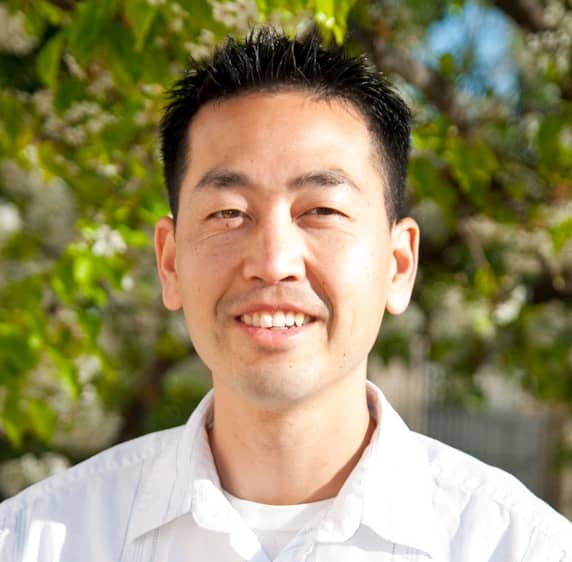
One out of every three adults will eventually suffer some form of dementia, the most common of which is Alzheimer’s. Many today know someone we love with this progressive decline in cognitive and social skills. And although we annually spend millions of dollars on research and billions of dollars on care, experts still don’t fully know either what causes dementia or how to cure it.[1]
The various stages from mild to advanced include symptoms of memory loss, confusion about time or place, difficulty performing once-familiar tasks, problems speaking or writing, misplacing items, withdrawal from society, and changes in mood. It has been called “the long goodbye” because of its slow, yet sure, decline.
Along the way, many also struggle with the loss of hope. So, what good news does Christ offer for dementia and what hope is there for caregivers? In truth, how do we deal with any kind of chronic suffering? As followers of Christ, we believe that God’s Word alone provides the ultimate answer to any of these questions.
A Good Word for Sufferers
God’s Word speaks first to those who suffer from this illness. Trust that your Creator loves you. Even if you can’t articulate your desires, he knows you completely. For he formed you in your mother’s womb before a word was on your tongue. Before you took one step, he knew you intimately as a person (Psalm 139:1–4). So, you may not understand why God has laid his hand upon your health (vv. 5–6). Yet still, you can worship with the psalmist.
For even if you tried, you could never flee God’s presence. He remains always with you through the highest and the lowest points of life (vv. 7–10). And the dark severity of your disease is still not dark to God because not even dementia can separate you from his love (vv. 11–12). Your Creator knows you and he loves you. He remembers you even if you should forget him. He has fearfully and wonderfully made you in both body and soul (vv. 13–18). And he has good news for you despite your hardship.
Good News in a Fallen World
The memory loss of dementia points to the spiritual forgetfulness which all of us face, even in the best of health. Like Old Testament Israel, we often forget the God of Abraham, Isaac, and Jacob. Though he remains faithful to his covenant, his chosen people forget him time and time again. So, when Israel groaned as slaves in Egypt, God remembered them and rescued them (Exodus 6:2–8). He sent plagues against the Egyptian gods to free his people from captivity. He parted the sea and destroyed the pursuing army until Israel could sing of his deliverance (15:2, 11, 13). Yet his people again forgot him. They worshiped a golden calf even as Moses met with God atop Mount Sinai (32:1–35)).
So, God punished them until they repented for their forgetfulness. Then, God remembered them again and graciously declared, “I will walk among you and will be your God, and you shall be my people” (Leviticus 26:12). Yet Israel forgot their God once more as they grumbled in the wilderness. They whined for food and water until God remembered them and rescued them again. Thus, Israel’s entire history repeats this cycle of God’s remembrance and Israel’s forgetting: God sent water. They wanted food. God sent manna. They wanted meat. God promised land. They were too afraid to take it. God sent judges to lead them, but Israel kept falling away. They were constantly forgetting the God who remembered.
Yet how true this is of us. In times of suffering, we too forget the faithfulness of our God and fail to trust the One who never fails us. We suffer from a spiritual dementia as we forget how God is always present and always loving. Yet no matter what we do, God will never forget his children. This good news that God remembers is summarized in four words: Creation, Fall, Redemption, and Consummation. In Creation, we consider the wonders of God as we face the complexities of dementia.
We are overwhelmed by the intricate beauty of the human brain—more powerful than the circuits in our smartphones—more intelligence than for any other creature on earth. The brain allows us to think and speak and love—to move the various members of our body. So, in the beauty of our brainpower, God reminds us of our purpose: made in his image—created to love our God and to love each other in the way that he loves us (Matthew 22:37–39).
Consider then, all the many ways your brain allows you to lovingly glorify God: When you worship him in song; as you study his Word; while you demonstrate kindness; as you care for friends or serve in the church; when you compose a piece of art or music; read a book; solve a difficult problem; and soak in the beauty of God’s creation. All this glory to God is only made possible by the neurons firing in your brain. For he has uniquely created each one of us to lovingly glorify him and to lovingly bless the people in our lives.
So, before we listen to God’s Word about the curse of sickness in our fallen world, let us first rejoice in his very good creation of our bodies and our minds.
[1] Scientists theorize that certain proteins in the brain either stick together or get tangled up. This blocks the neurons from firing, eventually resulting in atrophy of the brain tissue which affects the person’s natural functioning.
6/16/2025 5:48:12 PM




